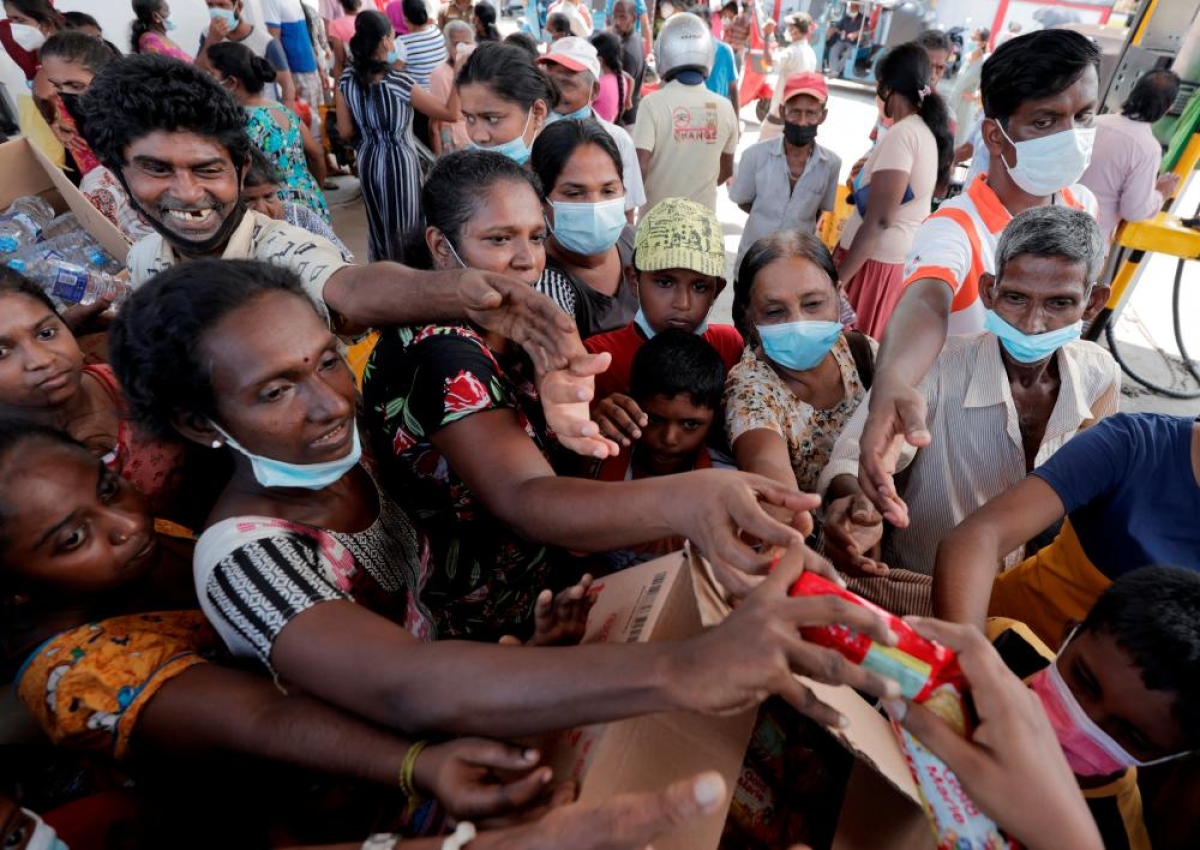A recent report jointly conducted by the Food and Agriculture Organization of the United Nations (FAO) and the United Nations World Food Programme (WFP) reveals that food security in Sri Lanka has seen significant improvement across all provinces. The Crop and Food Security Assessment Mission (CFSAM) report, carried out in February and March 2023, indicates a decline in moderate acute food insecurity, with 3.9 million people, or 17 percent of the population, currently affected compared to nearly 40 percent higher numbers in June and July of the previous year. Moreover, the number of severely food-insecure individuals has reduced from 66,000 to 10,000 during the same period.
The progress in food security can be attributed to improved food consumption, which can be attributed to reduced food prices and increased incomes among farming communities during the harvest season, as observed during the mission.
Despite this positive trend, certain districts still face high levels of food insecurity, particularly Kilinochchi, Nuwara Eliya, Mannar, Batticaloa, Vavuniya, and Jaffna. Acute food insecurity remains most prevalent among tea plantation communities in the Estate sector, as well as among daily wage laborers and households relying on social assistance programs such as Samurdhi.
According to the report, cereal production, including rice and maize, for the main cropping seasons in 2022/23 is estimated to be 14 percent below the five-year average at 4.1 million tonnes. This decline is mainly due to insufficient fertilizer supply and the unaffordability of essential inputs. However, the distribution of essential fertilizers to smallholder farmers by the government, with the support of multilateral and bilateral donor agencies, has positively impacted production. The recently harvested 2022/23 "Maha" season saw a 12 percent increase in productivity compared to the 2022 "Yala" season.
Commenting on the CFSAM report, Mr. Vimlendra Sharan, the FAO Representative to Sri Lanka and the Maldives, highlighted the report's significance in identifying vulnerabilities and challenges in Sri Lanka's food systems. He emphasized the need for policymakers and stakeholders to collaborate in ensuring food security, agricultural resilience, and risk mitigation for farmers and rural communities affected by the economic crisis. FAO remains committed to supporting Sri Lanka's efforts in achieving sustainable food systems, food security, and zero hunger.
Abdur Rahim Siddiqui, the WFP Representative and Country Director for Sri Lanka, acknowledged the progress made in food security but stressed the need for continued action. Over 60 percent of households still resort to negative coping strategies, such as borrowing money or purchasing food on credit. To address this, WFP plans to extend its emergency operation to provide food rations and cash assistance to those identified as food insecure.
The joint FAO/WFP Mission recommends immediate support to farmers by releasing available fertilizer stocks to enhance production in the ongoing "Yala" season. Urgent policy decisions to import fertilizers for the upcoming 2023/24 "Maha" cultivation season are also advised. The report suggests a gradual and phased reduction or removal of fertilizer subsidies, allowing sufficient time for farmers to adapt. Other recommendations include the establishment of a "Fertilizer Task Force" to streamline procurement and distribution, research on climate-smart agriculture, and increased support for fodder and feed crop production in the livestock and fisheries sectors.
Continued food and cash assistance, livelihood support, and resilience-building initiatives are also recommended to prevent vulnerable households from compromising productivity and coping with future shocks. The report's findings and recommendations aim to guide Sri Lanka in its pursuit of sustainable food systems and improved food security.










